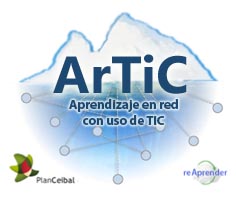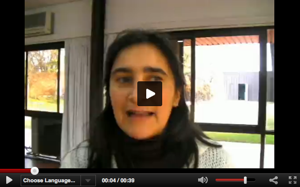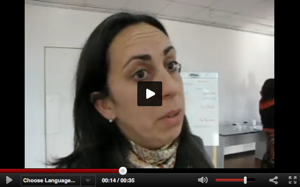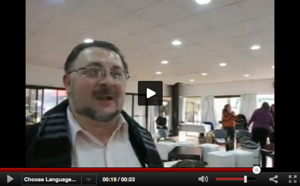Because of my work with the EduCamp workshops and the open online courses I did since 2009, the Ceibal Center (Ceibal Center for supporting children and adolescents' education, which leads the deployment of the One Laptop Per Child initiative in Uruguay) invited me to design a blended course/workshop aimed to secondary school teachers, concerning the development of network learning skills. This course/workshop would use the EduCamp as a starting point for a 6-week online exploration of the creative skills of teachers.
This is important because teacher training remains a critical issue in any program involving the provision of computers for each student in the classroom (referred to as 1:1). This applies to Uruguay and any place where such initiatives are being implemented (as pointed out by this IADB report). However, this is not caused by a lack of options, because there's a huge amount of programs about the use of technology in the classroom, aimed both to in-service and in-training teachers, in face-to-face and online modalities.
Now, even though a lot of programs have a quite coherent discourse around networked learning (the same you get to hear at most conferences), the practices they model either underuse the possibilities of the tools and media available keeping teachers inside LMS or proprietary platforms, or focus too much on the use of specific applications. So it is hard to expect transformations in teacher's practices, when the practice they're exposed to remains unchanged. This remains an issue with teacher training programs developed so far in Uruguay, so the Ceibal Center wanted to explore different options for the secondary education level.
 ArTIC (Spanish acronym for "Networked Learning with Information and Communication Technologies") is the name we gave to this workshop, in which participants explore and experiment with different media, blending this exploration with application in their own classrooms. The process starts with an EduCamp in which each participant identifies his/her personal learning environment and start to expand it with the support of other participants. This is followed by six weeks of online activities (anyone anywhere can join at this point) and a final meeting at the end, in which participants do a balance of the things learned and identify new learning paths and eventual projects to be developed.
ArTIC (Spanish acronym for "Networked Learning with Information and Communication Technologies") is the name we gave to this workshop, in which participants explore and experiment with different media, blending this exploration with application in their own classrooms. The process starts with an EduCamp in which each participant identifies his/her personal learning environment and start to expand it with the support of other participants. This is followed by six weeks of online activities (anyone anywhere can join at this point) and a final meeting at the end, in which participants do a balance of the things learned and identify new learning paths and eventual projects to be developed.
With just six weeks of living this experience, these are some of the things teachers from Uruguay are saying about ArTIC:
 .
.  .
.
A report of results of the EduCamp entitled "EduCamp Colombia: Social Networked Learning for Teacher Training", based on surveys applied to participants, was published in a special issue of the International Review of Research in Open and Distance Learning, a leading journal in Open Education topics.
This article was used at University of California, Berkeley as a guideline to do their own Cal EduCamp in 2011. In 2013, the Centre for Educational Research on ICT and Media at University of Iceland began their own series of workshops for professional development, based on the EduCamp experience.
New workshops were offered to teachers of all educational levels in Peru (in collaboration with Universia), Chile (in collaboration with Midas Educa), México (in collaboration with SINED -National System of Distance Education-) and Uruguay (in collaboration with Fundación El Abrojo). Also, a first test with a non-profit organization (Consumers International) was conducted in Peru. The experience was shared in events held in all these countries, as well as Brazil.